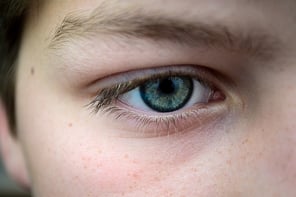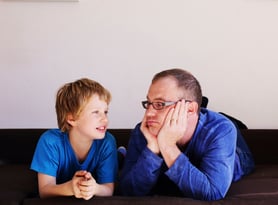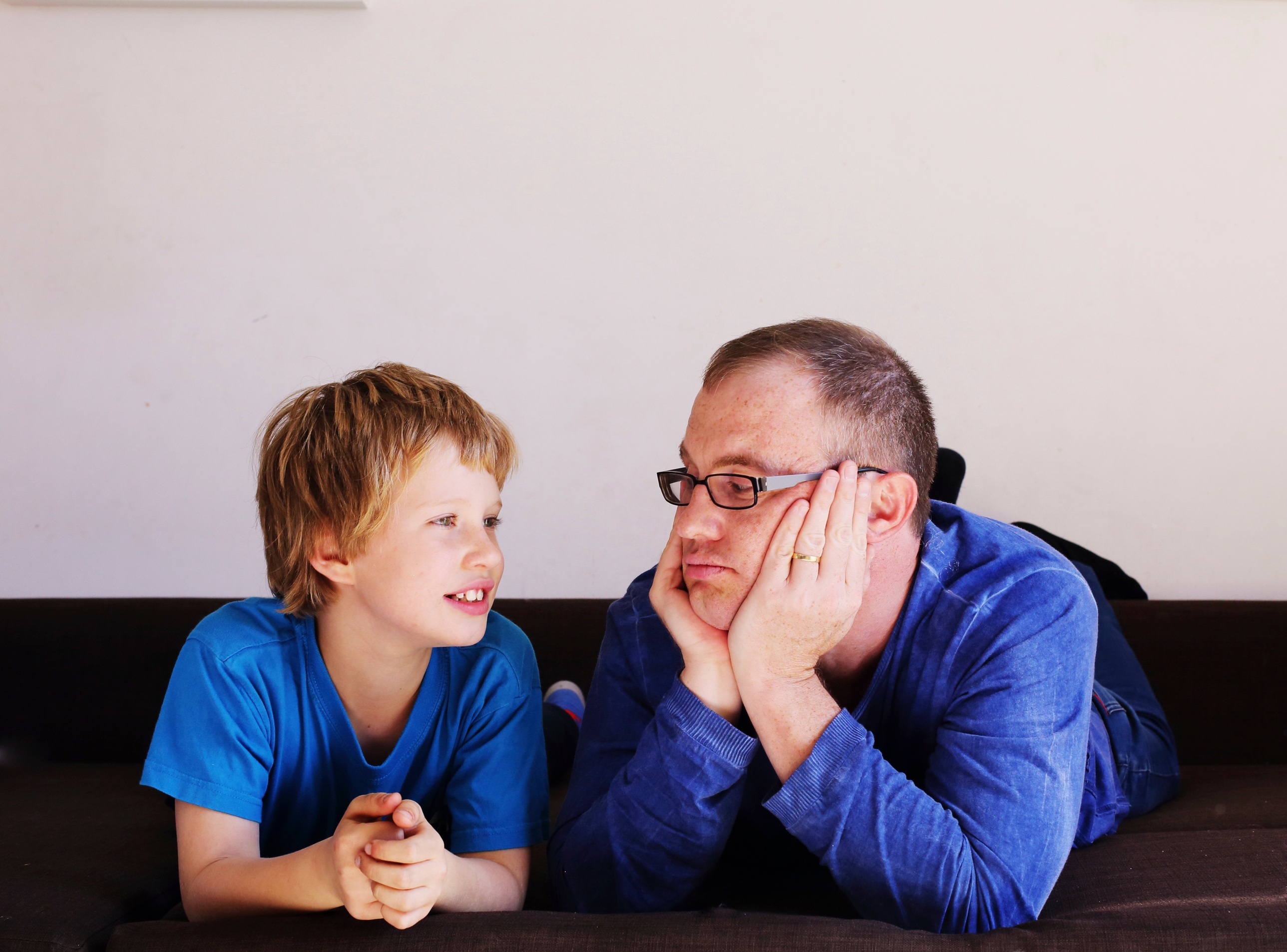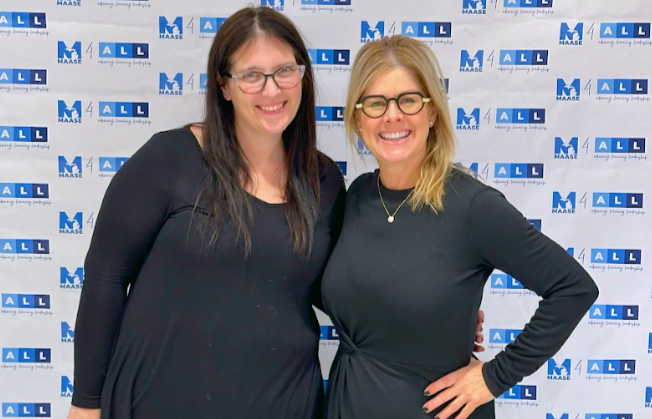The Positive Side of Autism
Note: Nathan Hughes is a writer who works for Stages Learning. He provides an inside view of his experiences living with autism. Stages Learning is dedicated to providing our community with useful articles relating to autism. For more about our products and resources for children please see our collection of learning tools.
Exploring the Positives and Benefits of Autism
One of my favorite autism-related quotes is “It seems that for success in science or art a dash of autism is essential.” This was said by none other than Hans Asperger, the namesake for the former diagnosis of Asperger’s Syndrome. Although living with Asperger’s* has often been challenging for me, I definitely agree with the sentiment of this quote. There are many things that I feel were gifted to me when I was born with autism, and I have met hundreds of people who have talents that likely resulted from this difference. I recognize that many individuals (and their loved ones) view autism as a hardship instead of a blessing, but I would like to take a moment to reflect on autistic qualities that may likely be an asset in life and in today’s modern society.
It seems that for success in science or art a dash of autism is essential.
--Hans Asperger.
Attention to Detail – I have heard many teachers and parents describe their frustration with an autistic child’s inability to look at “the big picture” when thinking about an issue, and to instead focus on smaller details, regardless of their importance. This can be difficult when in the midst of a challenging situation, but in other ways this type of thinking can help people with autism be successful in their lives. For example, I am aware of several IT companies who are actively seeking people with ASD for employment. Their argument is that many of these individuals can find issues with software that others cannot due to their intense focus on details, rather than on whether a program “works” or not. However, this type of success may not be limited to technology-related jobs. I believe that many employers will find that their workers with autism provide them with excellent results for similar reasons, and that this thorough work may even set an example for their other employees.
Expertise in Special Interests – Most people think that having an obsessive interest in a particular subject will limit social interactions and may inhibit friendships due to others not sharing this interest. The fact that many people with autism have social skills deficits in addition to an all-encompassing area of interest makes these concerns more significant for parents and teachers. These concerns are legitimate, but as children with ASD grow older, their peers will socially mature and will be able to recognize the level of expertise that they have in their topic of special interest
When I was in high school, one of my main obsessions was humorous websites and online videos. I would spend hours browsing through Google results and through YouTube videos in order to find pages that would make me laugh. Although I was isolated when I first started high school, I eventually found a group of friends who I connected with through our shared sense of humor, and they were always asking me to send them links to obscure webpages that they may not have known about before.
The above example discusses the positive impact of special interests on social interaction and friendships, but if the special interests of a person with ASD are marketable, employers will definitely want to learn about their expertise in a particular topic. For example, I know of people who have used their deep fascination with animals to excel in positions at zoos and animal reserves, and my interest in understanding ASD has allowed me to receive both unpaid and paid internships in autism research. Therefore, I advise all people with ASD to not be discouraged when it seems that you have different interests than others, as there are people out there who will embrace your knowledge and appreciate your assistance with tasks relating to these interests.
 A Different World View – It is almost common knowledge that people with autism see things differently than those who are considered neurotypical. This can lead to social challenges between these two groups of people, as one group may be unable to understand how the other thinks. At the same time, however, the differences in thought that autistic people have can lead to revolutionary ideas that can change how others view certain concepts. In fact, many of those who we look at as leaders in their fields may have been on the autism spectrum. I have heard on countless occasions how individuals such as Thomas Jefferson, Sir Isaac Newton and Albert Einstein had certain traits that led historians to believe that they were autistic, and how “non-typical” thinking may have led them to form ideas that they would be remembered for in the years and centuries to come. Whether these important figures actually had Autism Spectrum Disorder is irrelevant, as the speculation itself shows that people are beginning to recognize the positive qualities and necessity of autistic thought.
A Different World View – It is almost common knowledge that people with autism see things differently than those who are considered neurotypical. This can lead to social challenges between these two groups of people, as one group may be unable to understand how the other thinks. At the same time, however, the differences in thought that autistic people have can lead to revolutionary ideas that can change how others view certain concepts. In fact, many of those who we look at as leaders in their fields may have been on the autism spectrum. I have heard on countless occasions how individuals such as Thomas Jefferson, Sir Isaac Newton and Albert Einstein had certain traits that led historians to believe that they were autistic, and how “non-typical” thinking may have led them to form ideas that they would be remembered for in the years and centuries to come. Whether these important figures actually had Autism Spectrum Disorder is irrelevant, as the speculation itself shows that people are beginning to recognize the positive qualities and necessity of autistic thought.
The Ability to Teach Others – When I was thinking recently about the meaning of my own relationships with friends and family, I realized that the uniqueness and the difficulties that I presented with helped these people grow as individuals. They became much more tolerant and accepting of those who were considered different by mainstream society, and were more likely to include them in their social circles. I think that this is the case with many autistic individuals and their networks of relatives and peers. The ability of parents and siblings to accept their immediate family for who they are, for ex ample, may translate into their being compassionate towards those who are similar to their autistic child or sibling, and even towards those who are marginalized by others in different ways. People with autism can thus help their loved ones to understand the value that all people possess, regardless of their idiosyncrasies and their struggles.
ample, may translate into their being compassionate towards those who are similar to their autistic child or sibling, and even towards those who are marginalized by others in different ways. People with autism can thus help their loved ones to understand the value that all people possess, regardless of their idiosyncrasies and their struggles.
* I self-identify as someone who has Asperger’s Syndrome due to my general disagreement with the DSM-V classification system.
Help your child or student highlight their own positive qualities by downloading our free "About Me" Worksheet to use in your classroom, ABA program or at home.

Nathan Hughes
Nathan Hughes is a recent graduate of Lesley University, where he received his Master’s Degree in Education of Students with Moderate Disabilities in Grades 5-12. He is also a graduate of Salem State University, where he received a Bachelor’s Degree in English. As someone who is on the autism spectrum, Nathan’s goal is to work in educational research and to contribute to a better understanding of autism.





